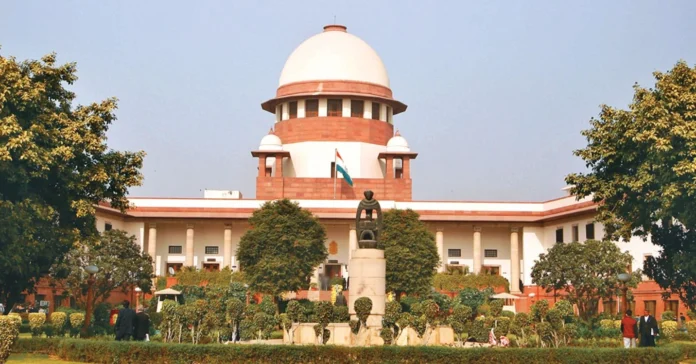The Supreme Court of India has dismissed a writ petition filed by the Managing Committee of Contai Rahamania High Madrasah and another party, who had approached the Court seeking a reconsideration of its earlier decision in Sk. Mohd. Rafique v. Managing Committee, Contai High Madrasah delivered in 2020.
In that judgment, the Court had upheld the constitutional validity of the West Bengal Madrasah Service Commission Act, 2008, which regulates the appointment of teachers in recognized madrasahs across the state. The petitioners contended that the statute was inconsistent with the rights guaranteed to minorities under Article 30 of the Constitution, which protects the right of minorities to establish and administer educational institutions of their choice. They argued that the Act interfered with the autonomy of minority-run institutions by subjecting their recruitment process to a government-controlled body.
The Bench comprising Justice Dipankar Datta and Justice Augustine George Masih found no merit in the arguments advanced. It reiterated that a judicial pronouncement itself cannot be attacked on the ground of being in violation of fundamental rights. In support of this conclusion, the Court relied on the Constitution Bench ruling in Naresh Shridhar Mirajkar v. State of Maharashtra, which had laid down that judgments of superior courts, even if alleged to infringe fundamental rights, cannot be the subject of fresh writ proceedings under Article 32.
The judges explained that permitting such challenges would effectively undermine the finality of judicial decisions and disturb the constitutional balance between different organs of the state.
The petitioners had also placed reliance on Vasanta Sampat Dupare v. Union of India, where the Supreme Court had allowed reconsideration of a previous verdict relating to the death penalty. The present Bench, however, clarified that the principle applied in capital punishment cases cannot be extended to matters of constitutional adjudication concerning minority rights and educational institutions. It stressed that the earlier decision upholding the West Bengal Madrasah Service Commission Act had conclusively determined the issue, and there was no legal justification for reopening it.
Finding the petition to be a clear misuse of the process of law, the Court not only dismissed it but also imposed exemplary costs of ₹1 lakh on the petitioners. The ruling sends a strong message that attempts to reopen settled questions by framing them as violations of fundamental rights will not be entertained, especially when the issue has already been addressed through a reasoned judgment.
The decision also reinforces the authority of constitutional bench precedents and underscores the judiciary’s stance that minority rights, while protected, do not exempt institutions from regulatory frameworks designed to ensure fairness and transparency in appointments.


